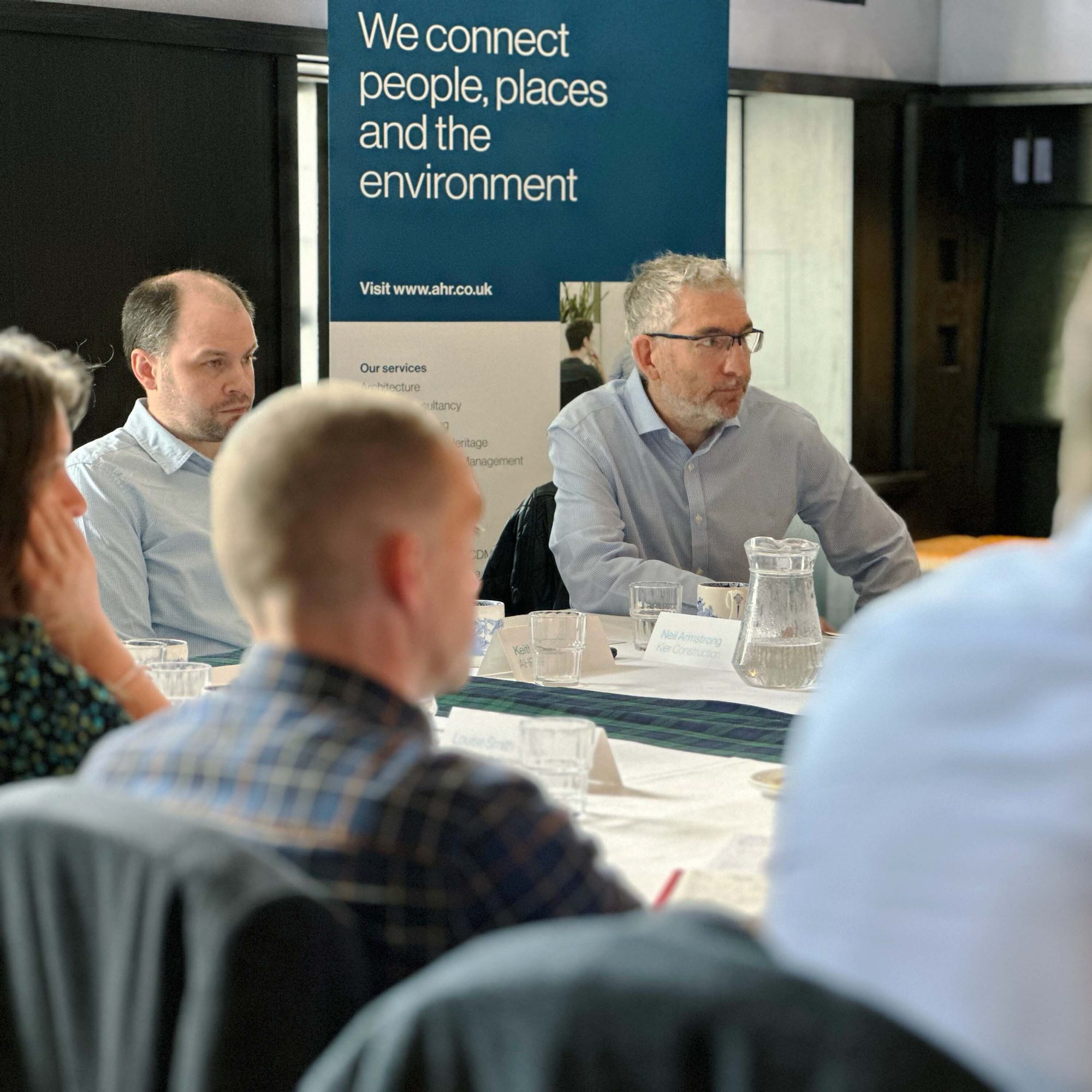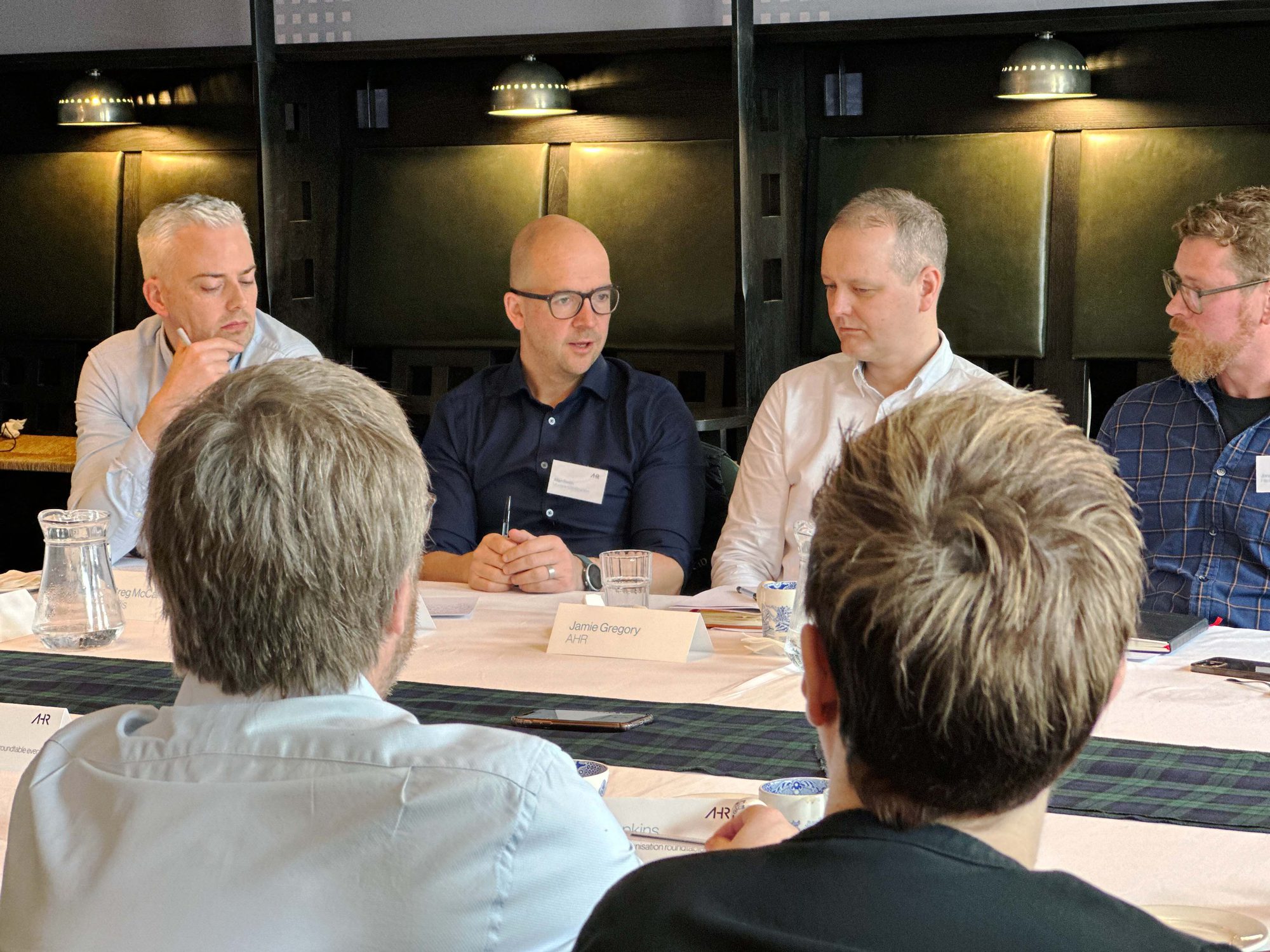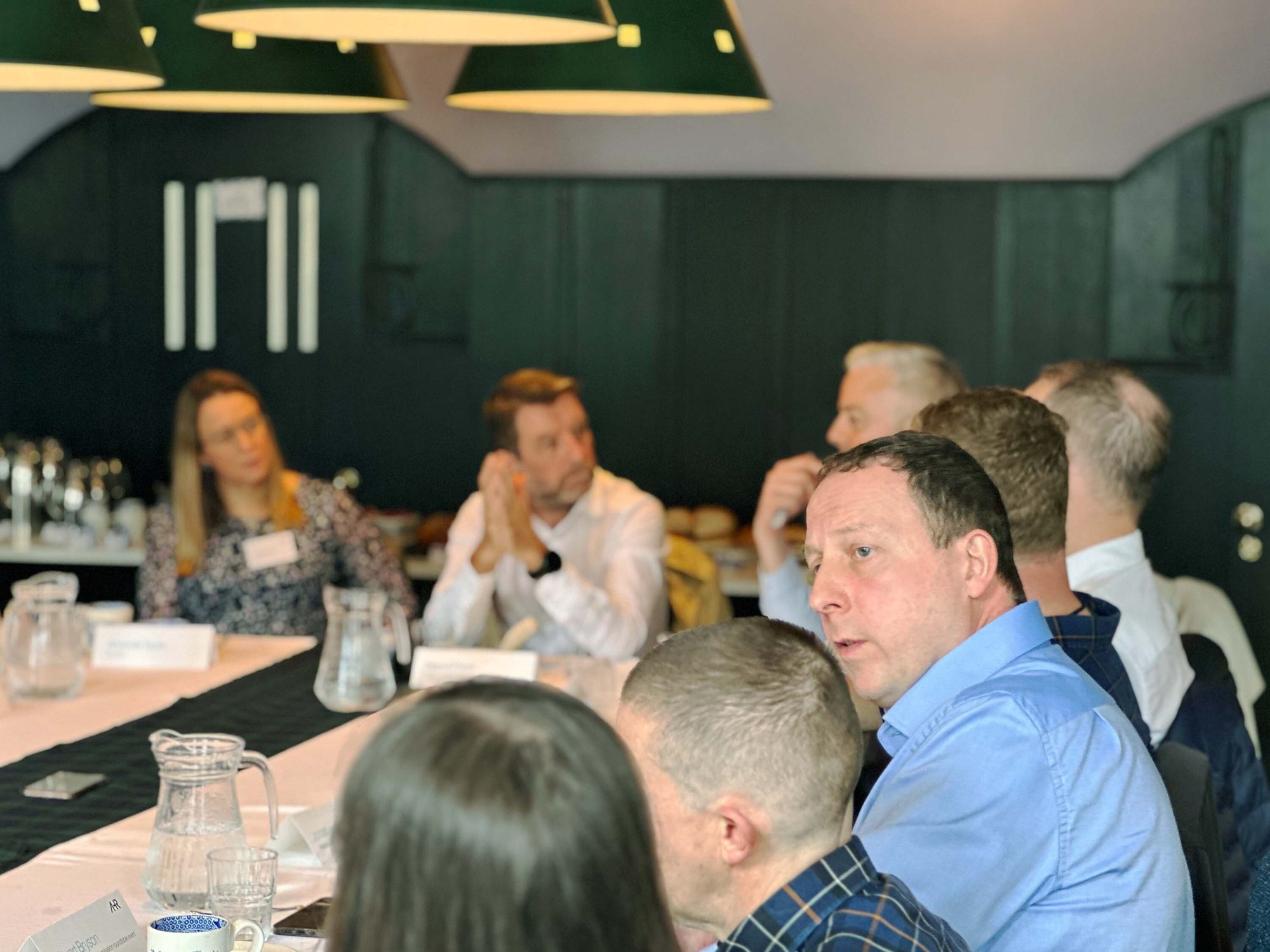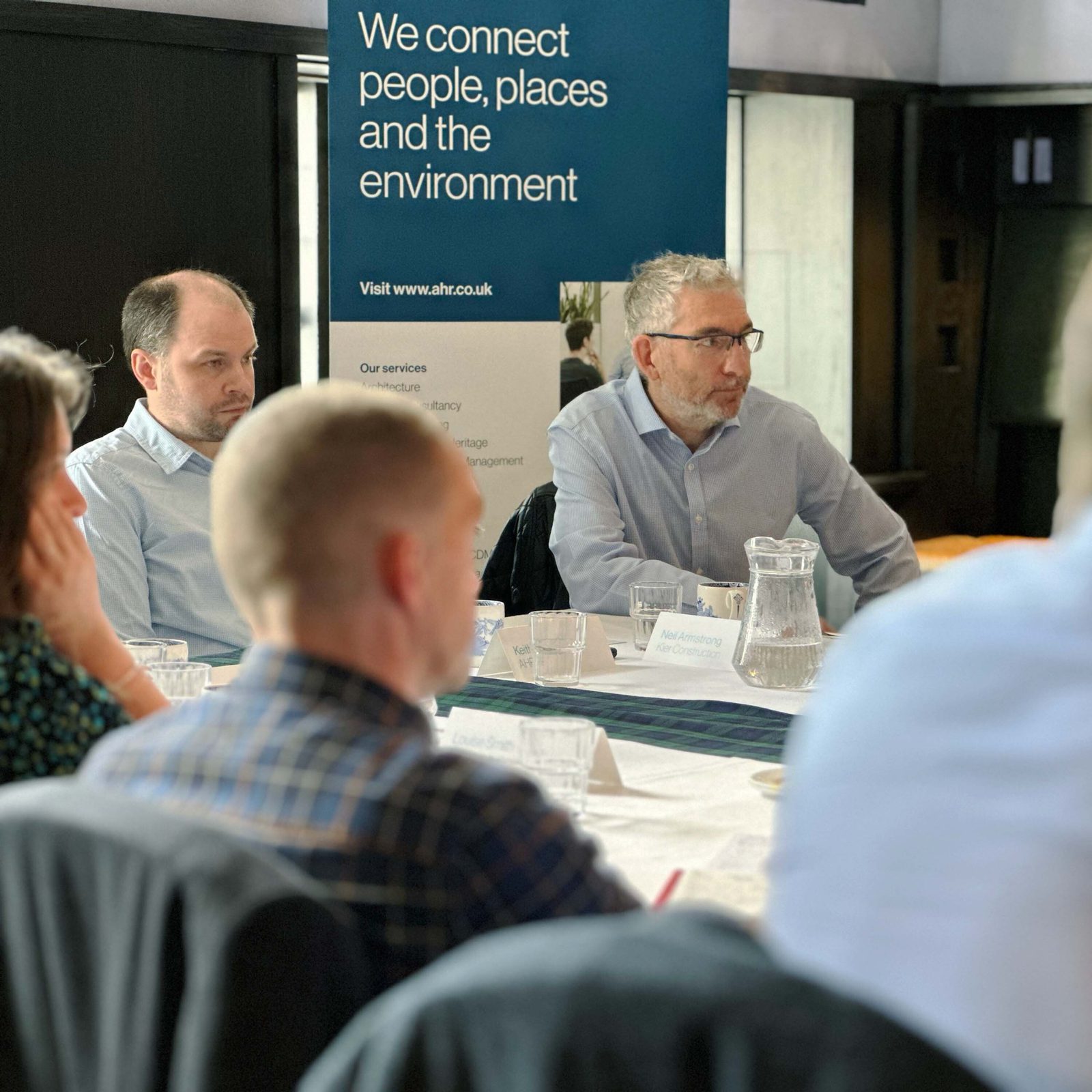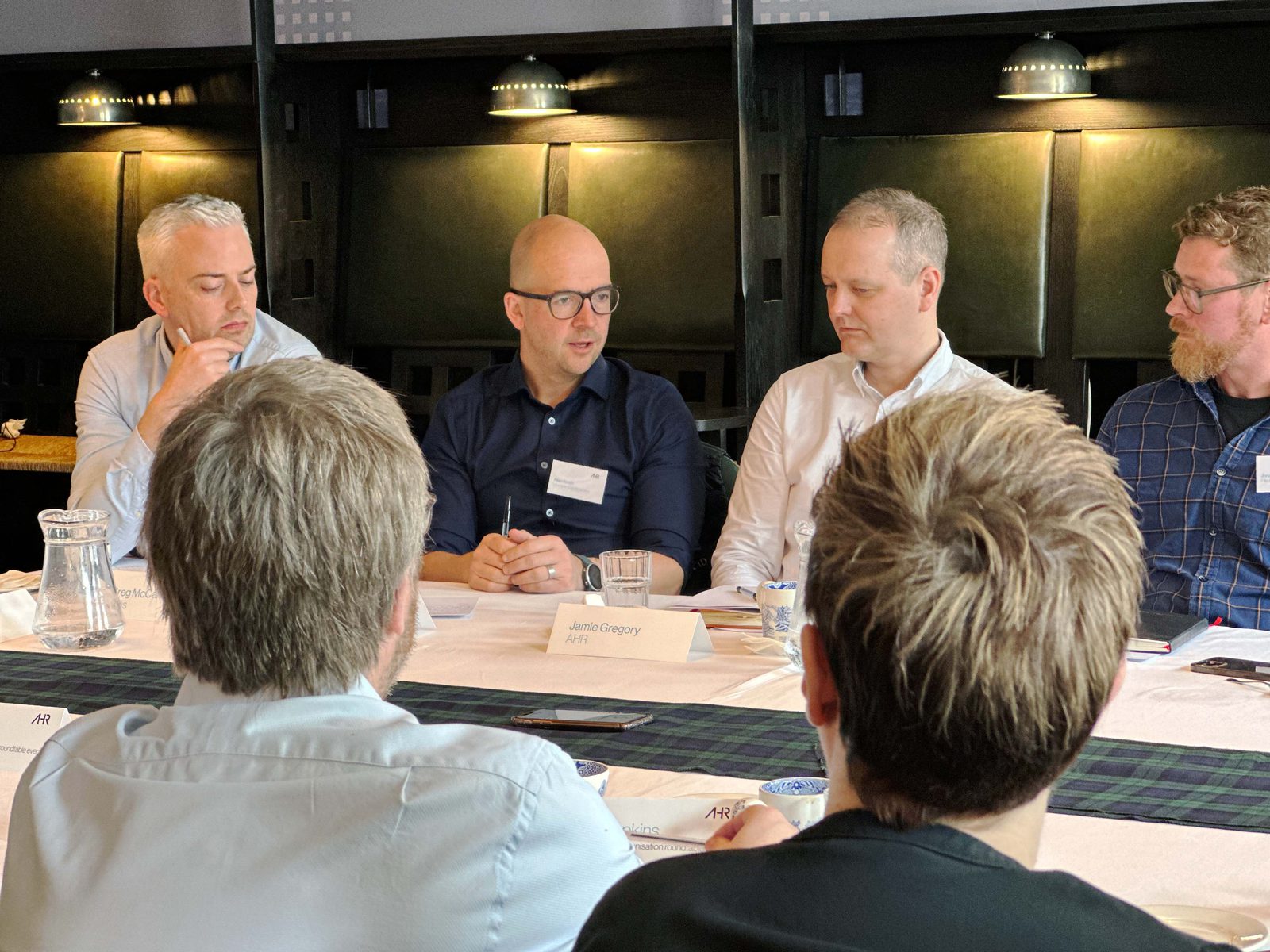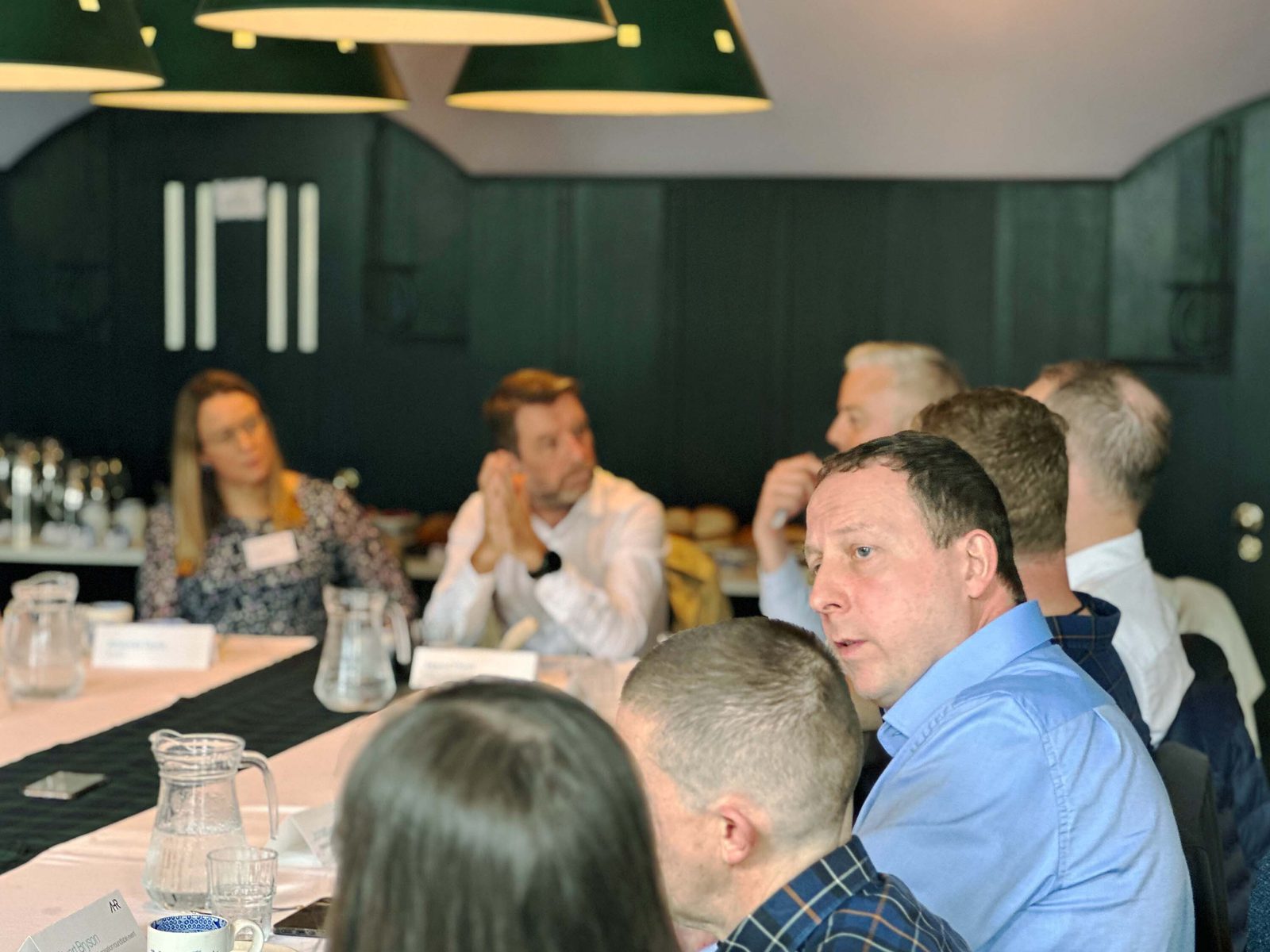
Practice News
Achieving decarbonisation: Insights from Glasgow
by AHR
Our second decarbonisation roundtable event of 2024 saw us in Glasgow, where we were joined by professionals within the industry to discuss and explore challenges and opportunities of decarbonisation and how we are navigating forthcoming changes in building performance standards and legislation.
A variety of attendees from across the industry came together, including Currie & Brown, Fairhurst, Fife Council, Hardies, Hollis, hub South West, Kier Construction, Morrison Construction, Perth & Kinross Council, Renfrewshire Council, University of Glasgow and Scottish Futures Trust, for another thought-provoking and insightful discussion.
The conversation brought many stimulating points to the fore, including how public and private sectors approach decarbonisation, how lack of funding and legislation is a significant barrier for all and the power of knowledge sharing and addressing skills gaps for a brighter future.
Continue reading for more insights and key takeaways from the discussion.
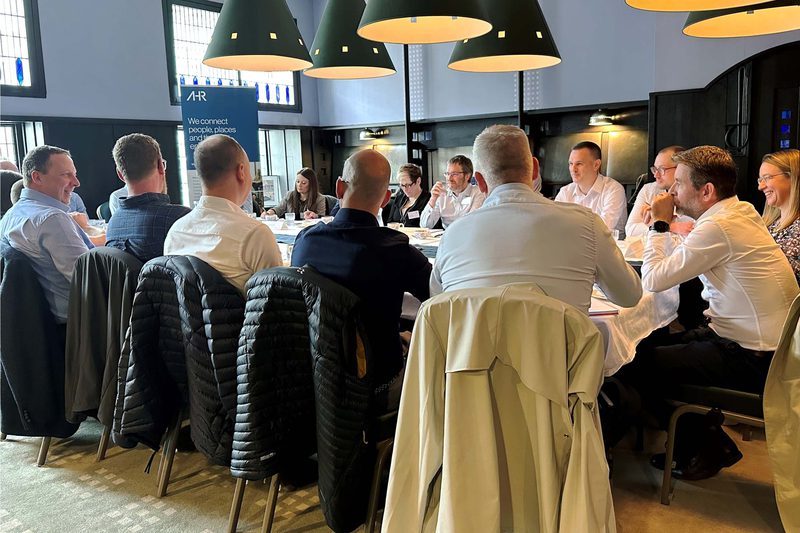
1. Collaboration: public and private sectors for decarbonisation
A prominent theme from the discussion was the difference in how public and private sectors approach sustainability. It was noted that while the public sector is making strides addressing sustainability requirements including decarbonising their estates and assets, the perception is that due to a lack of legislation and funding, the private sector hasn’t made the same progress.
The private sector is driven by market demands. There is the opportunity to educate and inform the market and occupiers to create greater demand for sustainable building practices, much like has been experienced in the office and workplace sector; a theme that emerged during our Birmingham discussion.
2. Funding the net zero carbon journey: a call for unified action
Participants voiced frustrations that current legislative and financial support are lacking and holding progress back. There was optimism surrounding the potential from sustainable energy solutions, particularly in the realm of heat networks. Drawing inspiration from successful implementations like Copenhagen’s district heating networks, there is immense potential for such initiatives to be harnessed and become a key part of the decarbonisation journey. An opportunity which many felt was being missed currently and one that the Scottish Government should quickly address.
Scotland’s proactive approach to Passivhaus strategies is evident, with the Government set to enact legislation by December 2024 to deliver a Scottish equivalent to the Passivhaus standard. This legislation will introduce high-energy efficiency standards for new buildings, emphasising the optimisation of building performance and ensuring quality assurance in construction.
3. Harnessing knowledge: closing the sustainability skills gap
Participants noted an improvement in knowledge around sustainability within both public and private sectors, but the need for more knowledge sharing to progress further.
Though a big concern was losing momentum, given the recent Scottish and UK Government announcements in delaying some targets. Without the drive from adequate legislation and regulation, inspiring future learning and addressing skill gaps becomes more challenging. Without the narrowing of these knowledge disparities and integrating sustainability principles into academic curriculum, we will not acquire the skills needed to reach a net zero future.
Emphasised was the need to begin this education at primary school level, embedding the knowledge from a much earlier age. The benefit being encouraging new habits and boosting market demand, while providing people with the skills to tackle sustainability issues. The role of universities was also raised as key in nurturing practical sustainability knowledge, applicable in real-world scenarios.
4. Optimising buildings for the future: technology meets user behaviour
The discussion placed a strong emphasis on the critical role of technology and user behaviour in achieving energy efficiency. Integrating innovative solutions like digital twins and performance modelling will be instrumental in overcoming industry challenges. Technology, particularly artificial intelligence (AI), emerged as a powerful tool for gathering and analysing data on building performance and user behaviour, a similar theme from our previous event in Birmingham.
Understanding user comfort and behaviour is equally important. By conducting post-occupancy evaluations and analysing data, we can gain valuable insights into how people interact with buildings. This knowledge is key to developing strategies that optimise energy usage. Greater emphasis should be placed on data collection and analysis to inform the people behind future building designs. Imagine buildings that not only meet our needs but also adapt to our behaviour, minimising energy waste.
Overall, the event highlighted successful initiatives as proof that partnerships, legislative support and technological advancements can create a more sustainable future for all.
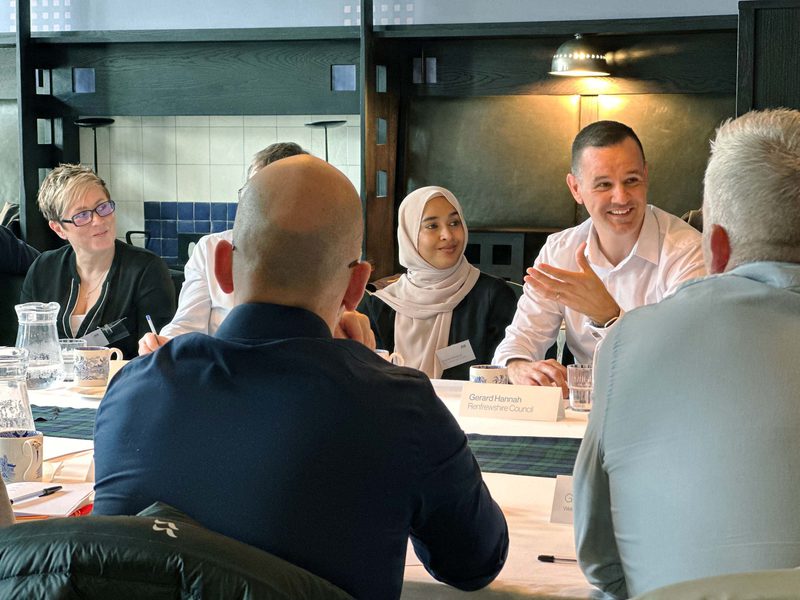
To learn more about how we are achieving decarbonisation through retrofit, visit our perspectives page here.
Share on
Related Articles

Podcast
Connecting awareness and solutions to deliver decarbonisation
Guest Speakers: Syd Cottle, University of Liverpool, Nia Prys Williams, Liverpool John Moores University, Robert Hopkins, AHR
Date: 19 Mar 24
Hosted by Hira Teirney
Associate Director, Architecture
Practice News
Achieving decarbonisation: What emerged during our roundtable discussion in Cardiff
In the third of our Achieving Decarbonisation roundtable series, we discussed retrofit and the challenges and opportunities it presents with our industry colleagues from Cardiff.
Date: 29 Nov 23
by AHR

Practice News
Continuing the conversation: Exploring pathways to achieve decarbonisation
In the second of our Achieving Decarbonisation roundtable series, we discussed retrofit and the challenges and opportunities it presents with our industry colleagues from Liverpool.
Date: 3 Oct 23
by AHR

Practice News
Achieving decarbonisation: The challenges and opportunities in retrofit
In our Achieving Decarbonisation roundtable series, we sat down with colleagues from across the industry in Manchester to discuss the challenges and opportunities in retrofit.
Date: 12 Jul 23
